Your career should be treated like a long journey whose destination is somewhat unknown. Some days you will travel further than others. However, it is up to you to ensure you are always making progress forward and not remaining stagnant for too long. It is equally important to be aware of any changes in your company or position that stunt your growth or even force you to go backwards.
The right employer will place an emphasis on ensuring you are always growing in your position. This may take the shape of professional development programs and regular performance assessments. However, you cannot sit back and expect them to closely monitor your individual progress. Not only do they not have the bandwidth for this, but it’s impossible for them to know what your personal and professional goals are. This week, we will explore the 5 ways to determine if you are still growing in your current position.
#1 – Are You Still Energized?
It’s important to take note of how you feel in the morning when getting ready for work. To be clear, you can feel tired and still be energized for the day ahead. The key is to take inventory of what other feelings you are encountering as you prepare for and go through your daily routine. Are you excited for the day or dreading it? When you are at work, are you actively engaged in your activities or are you watching the clock and waiting for 5pm?
If you have been working somewhere for over 6 months and still feel excited about your job, that is a sign that you are working on important projects and therefore progressing in your role. However, feelings such as dread, frustration or boredom could be tied to doing the same thing everyday. If you are no longer being challenged or learning new skills, you will become increasingly disenfranchised with your work.
#2 – Are You Developing Your Soft Skills?
Continually developing your soft skills is key to progressing in your career. These skills include leadership, communication, productivity, and time management. Depending on your goals, they may also include team management, conflict resolution, and complex problem solving. The only way to improve these skills is by working on them daily. This will depend on your daily tasks, projects you are working on, and people you interact with.
For example, if you are not being given challenging, complex tasks then you won’t learn how to manage your time and competing priorities. On the flip side, being involved in several projects with various departments and executives is a great way to build up your communication skills. Your ability to grow your skill set lies in what your job has you doing everyday. For the next two weeks, make a record of what you did each day and the skills you worked on. If your schedule is filled with mundane tasks and little interaction with others, this could mean you have become stagnant in your position.
#3 – Are You Learning New Hard Skills?
Hard skills are specific things you learn that are associated with your job or industry. For example, for a marketing professional, Adobe Photoshop would be considered a hard skill because it is unique to their role and department. This often includes programs and tools that are frequently used by either someone in your position or the role you want to be promoted into.
First, make a list of the programs and tools you use on a regular basis. Would you consider yourself an expert? If not, are you being given the opportunity to become one? Second, what do you need to learn to grow in your specific profession? Is there a project or responsibility you can volunteer for that will allow you to learn this skill? Be sure you are talking to the more senior people in your department to understand what skills and tools you should be learning.
#4 – Are Your Responsibilities Increasing?
It is common to get caught up in your day-to-day responsibilities that it might be months before you realize you are stuck in neutral. Remember, just because you are busy does not mean you are progressing in your job. It is possible your days are filled with time-consuming but basic tasks that do not contribute to your growth and development. While some responsibilities will always remain as a core part of the job, you should be getting additional responsibilities over time as well.
The longer you hold a position, the more important your responsibilities should become. Once you prove that you can handle basic tasks, your manager should begin to give you more complicated and challenging ones. Also, your role in certain projects should increase over time. This may include managing specific departments or being in charge of important phases and seeing them to completion. Try to compare your responsibilities list from when you started to where you are at now. Has the list grown in importance, remained the same, or decreased over time?
#5 – Do You See A Clear Path To Promotion?
While the majority of your focus should be doing your current job to the best of your abilities, you can also keep in mind where you want to go next. Does your company offer a set roadmap to promotion? If so, what method do they use to gauge your progress and performance? What current position are you aiming to move into? What do you need to learn or accomplish to get there?
Depending on the company, the road to a promotion might not always be crystal clear. This is especially true for smaller companies. At the moment, there might not be an open position for you to move into. The key is to focus on what you need to learn, accomplish and prove when there is. When possible, speak to the more senior members of your department to gain their advice. If this is not possible, you should feel empowered to ask your manager what you need to do in order to get a promotion.
Conclusion
It is your responsibility to track the development of your skillset and progression of your career. As we mentioned before, some days your journey will move slower than others. However, your responsibilities and tasks should become consistently more complex and educational as you move forward. If you can end each week feeling like you grew in some area of your career, you will know you are still on the right track.
Let’s Talk!
Looking to invest in your professional development and jumpstart your career trajectory? We can help!
Send us a note at contact@therglpgroup.com and we will set up your FREE introductory phone call to learn more about you and your goals!


